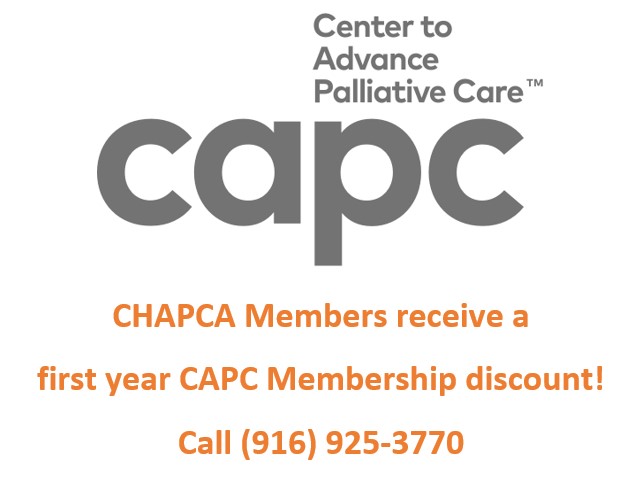- What is Hospice and Palliative Care?
- History of Hospice
- What is Hospice Care?
- What is Palliative Care?
- What is Aid in Dying?
- Don't Wait to Talk about the Care You Would Want
- Caregiving, What’s Your Plan?
- Life Stories Create Memories
- Advance Directives
- Get Your Advance Care Planning Guide
- Choosing a Hospice or Palliative Care Provider
- Grief and Loss
- CHAPCA Resources Library
- Additional Helpful Websites
- Hospice Fraud
- Program | Services | Jobs
- Join CHAPCA
- Donate | Advocate | Volunteer
- About Us
Build a Stronger Hospice Team with CHAPCA Education & TrainingEducation and training are necessary for hospice staff because the complexity of patient needs, evolving regulatory requirements, and increasing scrutiny of care quality demand continuous professional growth. Hospice professionals must be equipped with up-to-date clinical skills and strong communication, documentation, and interdisciplinary collaboration abilities to deliver compassionate, compliant care. Ongoing education ensures that staff can confidently navigate changing standards, provide better support to patients and families, and strengthen the overall integrity and success of the hospice program. Why It Matters
What You Get
Member Advantages
Click here to view our Education CalendarCHAPCA Education PartnersCHAPCA is dedicated to providing cost-effective training opportunities that meet the needs of our members and enhance their skills, knowledge and competencies. We’ve partnered with Weatherbee Resources, and Hospice Webinar Network to provide education in a variety of hospice and palliative care operational and clinical topic areas. Click Here For Upcoming EducationContinuing Education CreditContinuing education credit available on some course content.California education credit issued under CEP# 11389-California Hospice and Palliative Care Association. Please retain as proof of attendance. Tax DeductionAll expenses for Continuing Management Education (including registration fees, travel, meals and lodging) taken to maintain and improve professional skills are tax deductible. (Treas. Reg. L162-5 Coughlin v. Commissioner, 203 F2d 307).
|


